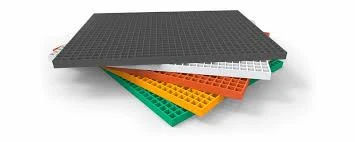
-
 Afrikaans
Afrikaans -
 Albanian
Albanian -
 Amharic
Amharic -
 Arabic
Arabic -
 Armenian
Armenian -
 Azerbaijani
Azerbaijani -
 Basque
Basque -
 Belarusian
Belarusian -
 Bengali
Bengali -
 Bosnian
Bosnian -
 Bulgarian
Bulgarian -
 Catalan
Catalan -
 Cebuano
Cebuano -
 China
China -
 China (Taiwan)
China (Taiwan) -
 Corsican
Corsican -
 Croatian
Croatian -
 Czech
Czech -
 Danish
Danish -
 Dutch
Dutch -
 English
English -
 Esperanto
Esperanto -
 Estonian
Estonian -
 Finnish
Finnish -
 French
French -
 Frisian
Frisian -
 Galician
Galician -
 Georgian
Georgian -
 German
German -
 Greek
Greek -
 Gujarati
Gujarati -
 Haitian Creole
Haitian Creole -
 hausa
hausa -
 hawaiian
hawaiian -
 Hebrew
Hebrew -
 Hindi
Hindi -
 Miao
Miao -
 Hungarian
Hungarian -
 Icelandic
Icelandic -
 igbo
igbo -
 Indonesian
Indonesian -
 irish
irish -
 Italian
Italian -
 Japanese
Japanese -
 Javanese
Javanese -
 Kannada
Kannada -
 kazakh
kazakh -
 Khmer
Khmer -
 Rwandese
Rwandese -
 Korean
Korean -
 Kurdish
Kurdish -
 Kyrgyz
Kyrgyz -
 Lao
Lao -
 Latin
Latin -
 Latvian
Latvian -
 Lithuanian
Lithuanian -
 Luxembourgish
Luxembourgish -
 Macedonian
Macedonian -
 Malgashi
Malgashi -
 Malay
Malay -
 Malayalam
Malayalam -
 Maltese
Maltese -
 Maori
Maori -
 Marathi
Marathi -
 Mongolian
Mongolian -
 Myanmar
Myanmar -
 Nepali
Nepali -
 Norwegian
Norwegian -
 Norwegian
Norwegian -
 Occitan
Occitan -
 Pashto
Pashto -
 Persian
Persian -
 Polish
Polish -
 Portuguese
Portuguese -
 Punjabi
Punjabi -
 Romanian
Romanian -
 Russian
Russian -
 Samoan
Samoan -
 Scottish Gaelic
Scottish Gaelic -
 Serbian
Serbian -
 Sesotho
Sesotho -
 Shona
Shona -
 Sindhi
Sindhi -
 Sinhala
Sinhala -
 Slovak
Slovak -
 Slovenian
Slovenian -
 Somali
Somali -
 Spanish
Spanish -
 Sundanese
Sundanese -
 Swahili
Swahili -
 Swedish
Swedish -
 Tagalog
Tagalog -
 Tajik
Tajik -
 Tamil
Tamil -
 Tatar
Tatar -
 Telugu
Telugu -
 Thai
Thai -
 Turkish
Turkish -
 Turkmen
Turkmen -
 Ukrainian
Ukrainian -
 Urdu
Urdu -
 Uighur
Uighur -
 Uzbek
Uzbek -
 Vietnamese
Vietnamese -
 Welsh
Welsh -
 Bantu
Bantu -
 Yiddish
Yiddish -
 Yoruba
Yoruba -
 Zulu
Zulu
fiberglass customized product
Customized Fiberglass Products A Blend of Innovation and Durability
In today’s fast-paced world, businesses are constantly seeking ways to stand out from the competition. One innovative approach to achieving this is through the use of customized fiberglass products. A versatile material known for its strength, lightweight nature, and resistance to corrosion, fiberglass has become a favored choice across various industries, including construction, automotive, aerospace, and consumer goods. This article explores the significance of customized fiberglass products, their benefits, and potential applications.
What is Fiberglass?
Fiberglass, a composite material made from fine glass fibers embedded in a resin matrix, delivers a unique combination of properties that make it suitable for a myriad of uses. Its lightweight composition makes it easy to transport and install, while its superior strength allows it to withstand harsh conditions, including extreme temperatures and exposure to chemicals. Additionally, fiberglass is non-conductive, which adds another layer of safety, especially in electrical applications.
Customization Meeting Unique Needs
The demand for customized products is rising as industries strive to create offerings tailored to their specific needs. Custom fiberglass products can be designed to meet precise dimensions, shapes, colors, and functions, ensuring that they align perfectly with a company’s branding and operational requirements. This level of customization is particularly useful in sectors such as construction, where specific architectural elements are required, and in automotive industries, where designs may need rapid prototyping to fuel innovation.
Benefits of Customized Fiberglass Products
1. Enhanced Performance Customized fiberglass products can be engineered for specific applications, optimizing their performance. For example, products can be designed to have greater resistance to environmental stressors such as UV rays, moisture, or chemicals, thereby extending their lifespan.
2. Cost-Effectiveness While the initial investment for custom products may be higher than off-the-shelf alternatives, the long-term savings can be significant. Customized fiberglass solutions often reduce maintenance costs and minimize waste by ensuring that the products serve their intended purpose without need for modifications or replacements.
3. Design Flexibility Fiberglass can be molded into almost any shape, providing the creative freedom needed to design unique product offerings. This flexibility allows companies to experiment with unconventional designs that may otherwise be unattainable with traditional materials.
fiberglass customized product

4. Eco-Friendly Options With a growing emphasis on sustainability, many manufacturers offer eco-friendly fiberglass options that utilize recycled materials, ensuring a lower environmental footprint. These greener products appeal to environmentally conscious consumers, enhancing a company’s marketability.
Applications Across Various Industries
The applications of customized fiberglass products are vast and varied. Here are a few standout examples
- Architectural Elements In construction and architecture, fiberglass can be crafted into decorative facades, columns, and custom molds, contributing to a building’s aesthetic while providing the strength needed for structural integrity.
- Marine Industries Boats and yachts often utilize fiberglass for hulls, decks, and internal structures due to its resistance to water corrosion. Custom designs enable manufacturers to create vessels that are not only more efficient but aesthetically pleasing.
- Automotive Manufacturing In the automotive industry, fiberglass components like body panels, dashboards, and interiors can be specifically engineered to enhance the vehicle's performance and safety features while minimizing weight.
- Consumer Products From furniture to sporting goods, customized fiberglass has found its way into consumer products as well. Unique shapes, styles, and finishes help brands differentiate themselves in a crowded marketplace.
Conclusion
The creation and utilization of customized fiberglass products represent a powerful intersection of innovation, functionality, and design. As industries continue to evolve, the demand for tailored solutions will only grow, making fiberglass an increasingly relevant material in customization discussions. Companies willing to invest in customized fiberglass products not only enhance their operational capabilities but also position themselves as leaders in their respective markets, delivering unique value propositions to consumers. In a world where personalization and specificity matter, fiberglass is at the forefront, offering a solution that is both practical and innovative.









